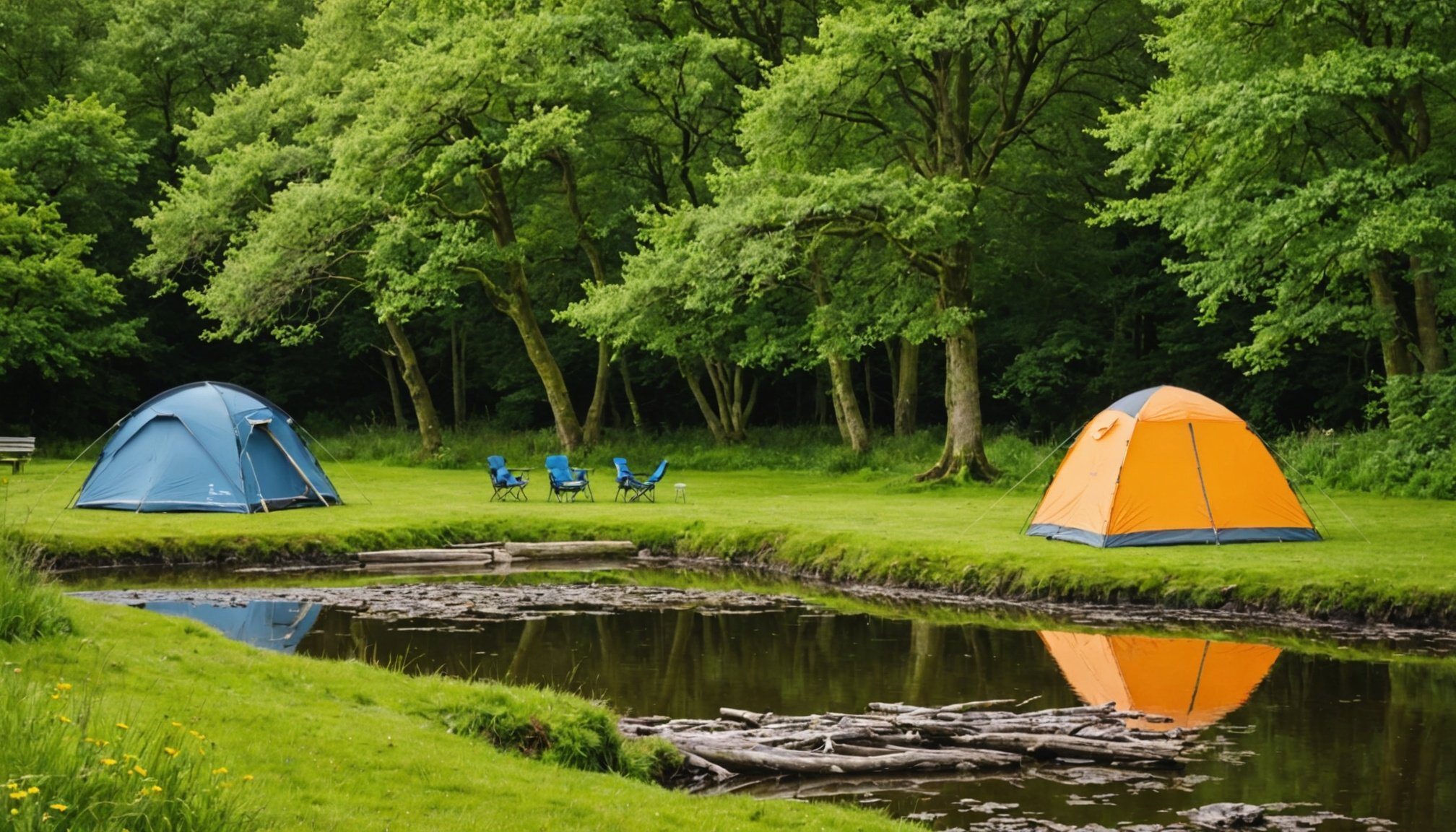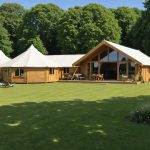Unveiling the Best Birdwatching Campsites in the UK: Your Essential Guide to Nature’s Secret Spots to Birdwatching in the UK
The United Kingdom is a paradise for birdwatchers, with its diverse landscapes and rich wildlife offering countless opportunities to spot a wide variety of bird species. From the serene wetlands of Norfolk to the rugged coastlines of Scotland, the UK is home to some of the most spectacular birdwatching sites in the world. If you’re planning to combine your love of birds with a camping adventure, you’re in the right place. Here’s a comprehensive guide to the best birdwatching campsites in the UK, complete with hidden gems, practical tips, and insider knowledge.
Norfolk Broads: A Haven for Bird Enthusiasts
Camping and Paddling in Harmony
The Norfolk Broads, located in eastern England, is a unique network of rivers and lakes that offers one of the most tranquil paddling and birdwatching experiences in the UK. This area is a haven for wildlife enthusiasts, with gentle waterways meandering through reed beds, forests, and marshes. The Broads are home to an abundance of birds, including herons, kingfishers, and swans, making it an idyllic setting for your outdoor adventure[1].
Topic to read : Explore uk campsites featuring handy on-site cooking facilities for your culinary adventures
Recommended Campsites
For those looking to camp in the Norfolk Broads, there are several excellent options:
- Great Yarmouth Racecourse: This campsite offers easy access to the water, allowing you to launch your kayak right from your tent.
- White House Beach Club Campsites: Located in a picturesque area, this campsite provides a serene environment perfect for birdwatching and paddling.
Tips for Your Visit
- Pack Essentials: Bring binoculars, guide books, maps, a notebook, and a camera to enhance your birdwatching experience.
- Be Patient: Wildlife watching often requires patience, so take your time and enjoy the peaceful surroundings.
- Guided Tours: Consider joining guided tours or workshops to get the most out of your birdwatching adventure.
North Norfolk: A Birdwatcher’s Paradise
Diverse Habitats and Abundant Wildlife
North Norfolk is renowned for its natural beauty and diverse habitats, making it a paradise for birdwatchers. The area is home to several nature reserves, each offering unique birdwatching opportunities.
Also read : Ultimate guide to protecting your camping equipment at uk festivals
Sculthorpe Moor Nature Reserve
Located in the Wensum Valley, Sculthorpe Moor Nature Reserve is an internationally recognized site with 200 acres of managed landscapes, including meadows, woods, fens, and wetlands. The reserve features seven hides and well-kept boardwalks, making it fully accessible for visitors. Here, you can spot a variety of birds, including kingfishers, common cranes, and otters[3].
Holme Dunes
At the northwest corner of Norfolk, where The Wash meets the North Sea, Holme Dunes is a must-visit for bird enthusiasts. This site is known for its migrating birds and is home to England’s largest grey seal colony. The area also features a four-mile shingle ridge and dune, backed by salt marsh and mudflats, providing spectacular views and uninterrupted wildlife watching opportunities[3].
Recommended Campsites
- Deepdale Camping & Rooms: Located near Dalegate Market, this campsite offers excellent access to local nature reserves and provides all the necessary information and gear for wildlife watching.
- Watatunga Wildlife Reserve: While not strictly a campsite, Watatunga offers award-winning nature reserve experiences with expert-led safari tours, allowing you to see deer, antelope, and various bird species in their natural habitat[3].
Scotland: The Highlands and Islands
A Birdwatcher’s Dream Destination
Scotland’s Highlands and Islands are a birdwatcher’s dream destination, with their rugged landscapes, ancient forests, and diverse wildlife. Here, you can explore some of the most pristine and untouched natural environments in the UK.
Abernethy Forest
Part of the Royal Society for the Protection of Birds (RSPB) reserve, Abernethy Forest is the largest natural woodland remaining in Britain, dating back nearly 8,000 years. This ancient Caledonian forest is home to a variety of songbirds, including the Crested Tit and Scottish Crossbill. You can also spot nesting Osprey, a relatively rare bird in Britain[4].
Mull and Iona
Mull is a wildlife paradise, known for its eagles, including both Golden and White-tailed Eagles. The island also hosts a range of northern moorland birds, such as the Hen Harrier and Short-eared Owl. Iona, accessible by ferry from Mull, is famous for its Celtic heritage and natural beauty, with opportunities to see Skylark and Twite[4].
Recommended Campsites and Accommodations
While there are fewer campsites in the remote Highlands and Islands, there are excellent accommodations that cater specifically to birdwatchers:
- Mountview Hotel: This hotel is a central base for many birdwatching tours in the Scottish Highlands, offering comfortable accommodations and guided walking tours.
- Heatherlea’s Private Woodland Estate: This estate provides exclusive access to private woodlands, ideal for spotting some of Scotland’s most iconic bird species[4].
Practical Tips for Your Birdwatching Adventure
Packing the Right Gear
To make the most of your birdwatching experience, it’s crucial to pack the right gear:
- Binoculars: A good pair of binoculars is essential for spotting birds at a distance.
- Guide Books and Maps: These will help you identify species and navigate the area.
- Notebook and Camera: For recording your observations and capturing memories.
- Comfortable Clothing: Dress in layers and wear comfortable shoes suitable for walking.
Joining Guided Tours
Guided tours can significantly enhance your birdwatching experience:
- Shrike Birding Tours: Offers customizable birding trips and mindful birdwatching workshops across the UK, catering to all levels of experience[2].
- Naturalist Journeys: Provides guided tours in Scotland, including visits to Abernethy Forest and the islands of Mull and Iona[4].
Table: Comparing Top Birdwatching Campsites in the UK
| Location | Campsite | Key Features | Accessibility | Wildlife Highlights |
|---|---|---|---|---|
| Norfolk Broads | Great Yarmouth Racecourse | Easy water access, peaceful surroundings | Car and kayak | Herons, kingfishers, swans |
| Norfolk Broads | White House Beach Club Campsites | Serene environment, paddling opportunities | Car and kayak | Herons, kingfishers, swans |
| North Norfolk | Deepdale Camping & Rooms | Access to nature reserves, guided tours | Car and public transport | Kingfishers, common cranes, otters, grey seals |
| North Norfolk | Watatunga Wildlife Reserve | Expert-led safari tours, diverse wildlife | Car | Deer, antelope, various bird species |
| Scottish Highlands | Mountview Hotel | Central base for tours, comfortable accommodations | Car | Osprey, Crested Tit, Scottish Crossbill, Golden and White-tailed Eagles |
| Scottish Highlands | Heatherlea’s Private Woodland Estate | Exclusive access to private woodlands | Car | Golden Eagle, Peregrine, Merlin, Red Kite, Ring Ouzel |
Hidden Gems and Local Insights
Sculthorpe Moor Nature Reserve
“Sculthorpe Moor is a hidden gem for birdwatchers. The reserve’s well-kept boardwalks and accessible hides make it easy to explore the diverse habitats, from meadows to wetlands. It’s a must-visit for anyone looking to spot kingfishers and common cranes,” says a local birdwatcher.
Holme Dunes
“Holme Dunes is a spectacular spot for migrating birds. The combination of shingle ridges, dunes, and salt marshes creates a unique habitat that attracts a wide range of species. It’s also home to England’s largest grey seal colony, making it a truly unforgettable experience,” notes another enthusiast.
Birdwatching in the UK is an adventure that offers something for everyone, from the tranquil waters of the Norfolk Broads to the rugged landscapes of Scotland’s Highlands and Islands. By choosing the right campsite and preparing with the necessary gear and knowledge, you can ensure a memorable and enriching experience. Whether you’re a seasoned birdwatcher or just starting out, these secret spots and practical tips will help you make the most of your journey into the natural world.
Plan Your Visit
Before you embark on your birdwatching adventure, here are a few final tips to keep in mind:
- Book Your Campsite Early: Popular campsites can fill up quickly, especially during peak season.
- Check Local Events: Many areas host outdoor events and guided walks that can enhance your experience.
- Use Public Transport: Where possible, use public transport to reduce your environmental impact and enjoy the local scenery.
- Read and Prepare: Read guide books and prepare your gear to ensure you’re ready for whatever nature has in store.
With this guide, you’re ready to uncover the best birdwatching campsites in the UK and immerse yourself in the natural beauty and wildlife that this incredible country has to offer. Happy birding









